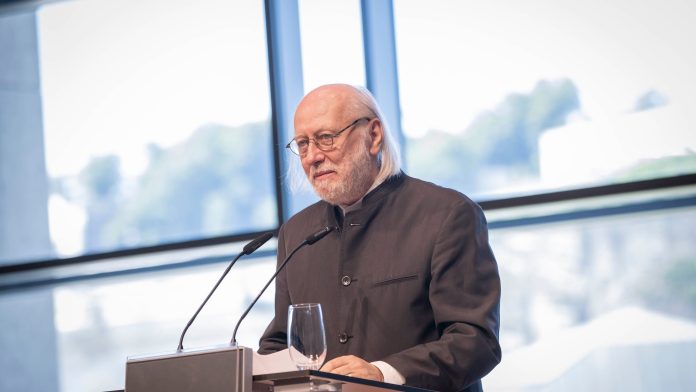
During the week of Oct. 6-13, the winners of the 2025 Nobel Prize were announced in each of the six categories: Physics, Chemistry, Economic Sciences, Physiology or Medicine, Literature and Peace. The announcements began on Monday, Oct. 6 with the winner of the Physiology or Medicine prize. Its announcement ended with Economic Sciences on Monday, Oct. 13.
On Thursday, Oct. 9, László Krasznahorkai was named the winner of the Nobel Prize in Literature. Krasznahorkai is a Hungarian novelist who is acclaimed “for his compelling and visionary oeuvre that, in the midst of apocalyptic terror, reaffirms the power of art,” according to the Swedish Academy. The 71-year-old has published nine books throughout his 40-year career and has won many prior awards for his work, including the International Booker Prize in 2015.
Krasnahorkai’s most known novels include "Satantango," "The Melancholy of Resistance" and his most recent, "Herscht 07769", which blends graffiti vandalism with Neo-Nazism to create a gripping single-sentence tale.
In an interview conducted by Nobel Prize staff member Jenny Rydén on the day of the announcement, Krasznahorkai first thanked his readers for their support. “I wish for everybody to get back the ability to use their fantasy,” he stated, “to read books and to enjoy and to be rich, because the reading gives us more power to survive this very, very difficult time on Earth.” He also explained that he takes inspiration from bitterness. By utilizing dystopian or fantastical themes in his work to convey the real-life bitterness he feels about the current state of the world.
Krasznahorkai boasts a list of works that use challenging diction and structures to cover topics that are difficult for many to engage with.
The Washington Post writer Jacob Brogan agrees with some critics that Krasznahorkai is “an unusually daunting pick,” citing sentences that “often extend over dozens or even hundreds of pages” as difficult to keep up with at times. The challenges of reading Krasznahorkai’s words are also “multiplied by the themes of his work, which famously extend towards the apocalyptic,” Brogan states. However, Krasznahorkai hopes that by refusing to shy away from these topics, he can inspire the next generations of literature to do the same.
